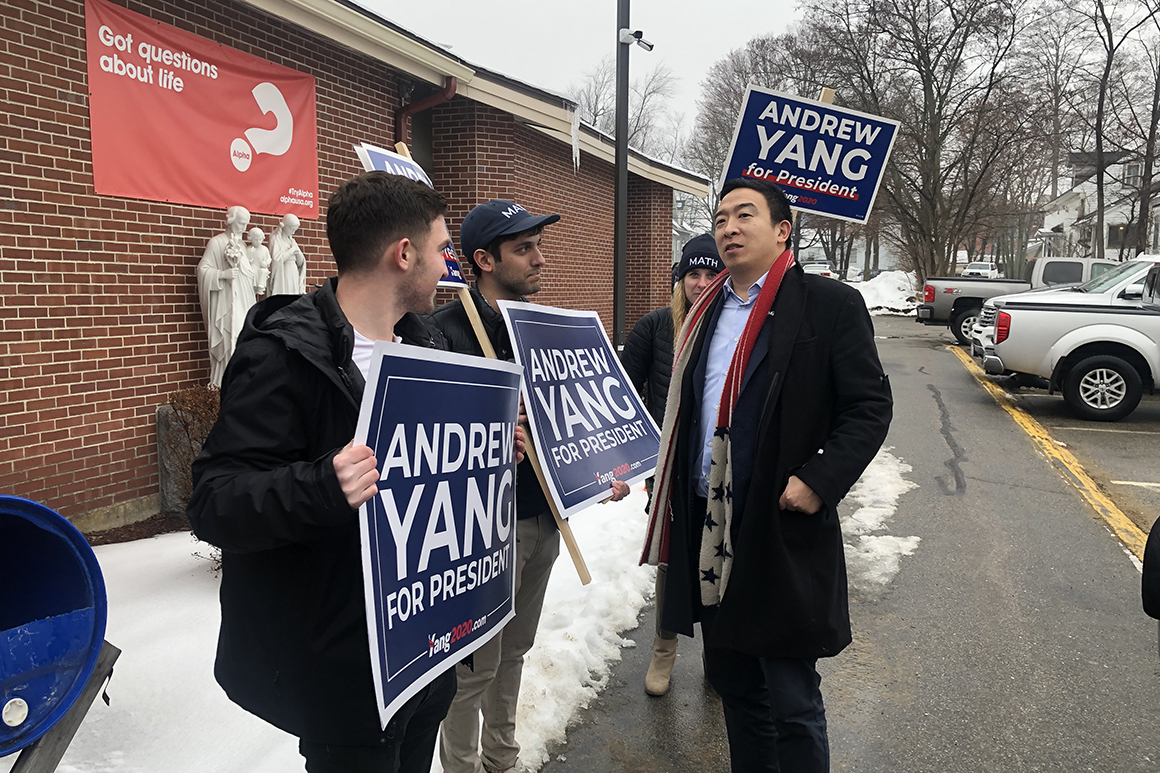
But instead of writing another book or starting another nonprofit — his first one, Venture for America, aimed to create startups in economically struggling cities — Yang decided the better way to get his ideas out was to run for the White House. There was, as Yang put it in an interview with POLITICO, “a gap in the political market.”
The “relative implausibility” of running for president, Yang added with a chuckle, “actually added to its appeal.” His wife, Evelyn, said she doesn’t even remember him telling her of his decision in 2017 because she “didn’t take it very seriously.” She gave him the go-ahead, not thinking much of it.
Around that time, Graumann, who worked on philanthropy for UBS Wealth Management and co-founded a nonprofit on the side, attended a dinner party of a mutual friend of his and Yang’s. It was the first time Graumann heard his future boss give his eventual stump speech.
“And then he’s like, and I’m running for president in 2020. And there were crickets in a 15-person room. I remember saying, ‘Of America, of the country?’” Graumann said. But Graumann was intrigued, and he quit his job and signed on.
The early days were rough. Yang had zero name ID. He was talking about automation and universal basic income — topics far removed from the day-to-day trench warfare Democrats were waging against Trump. Yang and Graumann hired two other staffers and began to work out of a New York apartment owned by Yang’s mother, who lives in Taiwan.
Yang and Graumann knew that getting mainstream media to pay attention to them would be impossible. Instead, they engaged with nontraditional outlets. Yang’s big break came when he landed an interview last February on former comedian Joe Rogan’s podcast, which boasts tens of millions of listeners.
Interest grew from there, but it wasn’t flattering at first. To the extent the media paid attention, it was often to Yang’s entertainment value, in the same way people found Marianne Williamson amusing. (For the record, Yang said he never minded the comparisons with the self-help guru. They’re friends.)
But something more was at work. Yang talked like a real person, and voters felt like he spoke to issues other candidates did not. As he became better known, Yang began to see some of the highest favorability numbers in the field. People liked him, even if they weren’t supporting him.
Source: politico.com
See more here: news365.stream






